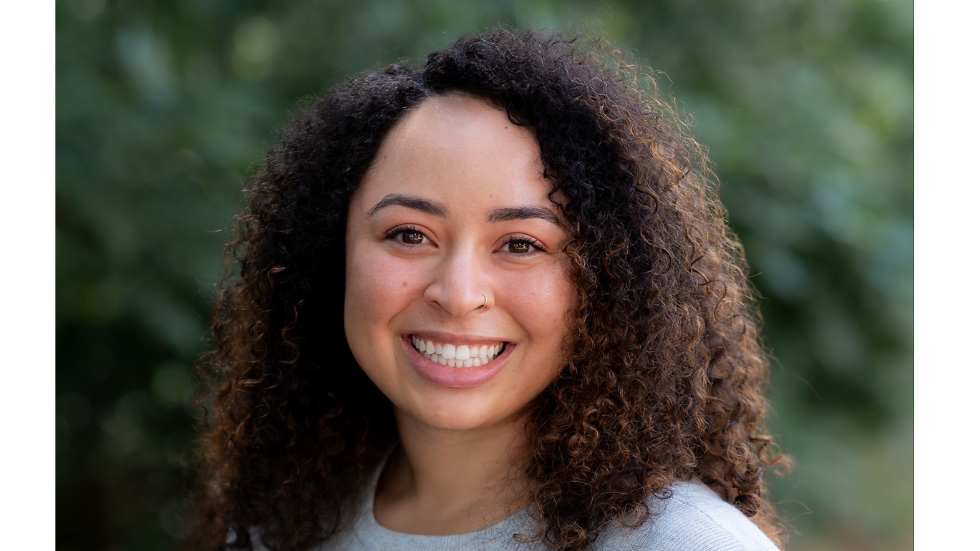Name: Brianna Sailor
Hometown: San Diego, California
Program: Urban Education Policy
Education: B.A. San Diego State University (Economics)
Current Position: Education Policy & Research Consultant at Augenblick, Palaich and Associates
What initially drew you to the UEP program at Brown?
Before applying to the UEP program, I worked as a Policy and Research Analyst at the Governor’s Office of Student Achievement (GOSA) in Georgia, where I evaluated programs and provided analysis on state-level education policies. While I valued the impact of my work, I wanted to strengthen my skills to ensure I was making the most meaningful contributions. UEP stood out to me because its coursework aligned with the knowledge and expertise I needed to excel in my role.
I was also drawn to the program’s one-year timeline. Coming from the workforce, I found this structure especially appealing compared to many two-year MPP programs. Additionally, the internship component was a major factor in my decision. I appreciated the opportunity to immediately apply what I was learning in a real-world setting, with continuous feedback to refine my practice. This hands-on experience was invaluable—so much so that I’m still employed with my internship host today.
How did your undergraduate studies or prior work experience influence your decision to pursue a master’s in urban education policy?
Both my undergraduate studies in economics and my professional experiences—as a high school teacher and later as a policy and research analyst—were instrumental in my decision to pursue a UEP degree. My economics background emphasized the power of incentives and how they can shape behaviors, for better or worse. As a teacher, I witnessed firsthand how poorly designed policies and misinterpreted outcome measures could negatively impact my students, often limiting their opportunities rather than expanding them.
UEP coursework deepened my understanding of these policy levers and challenged me to think critically about how we measure success in education. It pushed me to reimagine new, more equitable ways to assess outcomes—ones that truly support students rather than inadvertently creating barriers for them.
What was your favorite part about living in Providence and being at Brown?
I moved to Providence in June 2020, so my first 6–12 months here were pretty limited in terms of exploring the city. But when I had the chance, I loved taking walks along Blackstone Boulevard and enjoying dinner on Federal Hill, two of my favorite ways to experience the city.
Looking back, what would you say was the highlight of your experience in the UEP program?
Honestly, the constant exposure to publications and regularly discussing the validity of the methodology, and the implications. It felt like being part of a fast-paced, high-intensity book club—one that pushed me to think critically and engage deeply with education policy research. I actually wish I could join a (much slower) book club now that takes the same analytical approach to examining education policy publications!
What role does urban education policy play in addressing the challenges cities face today?
Wow, that’s a big question. One that’s constantly evolving, especially in today’s political climate. Urban Education Policy is crucial in tackling the complex challenges cities face. From an economic perspective, I firmly believe that the quality of a city’s education system directly influences its workforce strength, crime rates, income disparities, and so much more. A strong education system isn’t just about schools, it’s about shaping the overall health and stability of a community.
How did the UEP program prepare you for your current role?
The UEP program prepared me in countless ways. It equipped me with the skills to design and implement effective evaluation plans for educational programs, ensuring they are carried out with fidelity. I gained the ability to collect and analyze both qualitative and quantitative data to assess program quality and impact.
Beyond technical skills, UEP provided a strong foundation in understanding federal, state, and local policy levers while also challenging me to think creatively about new approaches to policy. Perhaps most importantly, the program gave me the confidence to critically engage with research publications, apply their methodologies and findings, and develop evaluations or policies that are both data-driven and impactful.
What advice would you offer to someone applying to the UEP program?
Take your internship placement seriously, it’s one of the most valuable aspects of the UEP program. I gained so much more from my experience because I was constantly applying what I was learning (or at least trying to) in real-time. The more intentional you are about engaging with your internship, the more you’ll get out of the program.
Be prepared to read a lot. Expect to always be reading, analyzing, and engaging with complex materials.
With the program’s fast-paced, one-year structure, it can feel like drinking from a fire hose. But don’t just power through it—make a conscious effort to absorb and engage with the information rather than simply keeping up. Take full ownership of your learning.
You don’t need to have every detail of your post-UEP path figured out, but having a clear sense of why you want this degree will help you get the most out of it. Given the accelerated timeline, this program isn’t the easiest space for pure exploration. Those who enter with a strong sense of purpose tend to find the greatest success and value.
